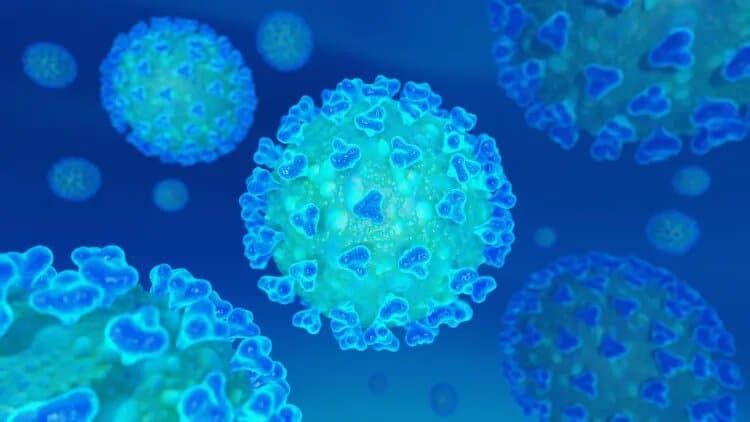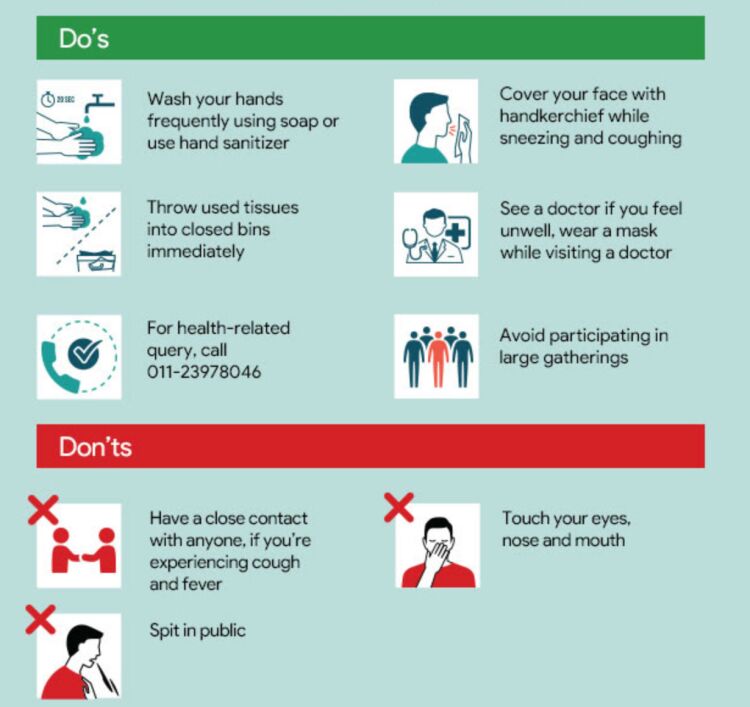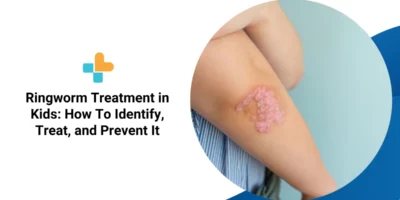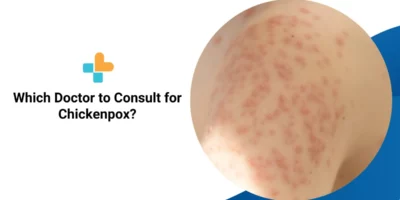Note: The suggestions here are based on information shared by WHO, Ministry of Health & Family Welfare – Government of India and other healthcare bodies, which are likely to evolve as the world understands more about this virus. Contents of this post should not be seen as medical advice. If you see any symptoms or have a travel history to the affected parts, please see a doctor immediately.
Last Updated: March 18, 2020
What is Coronavirus?
The first case of coronavirus was detected in Wuhan, China, on 17 November 2019. Since then, the virus has been alarming for everyone around the globe.

The severity of the infection has grown from case one to a state where the World Health Organization (WHO) had to publicly characterise the virus as “Pandemic” on 11 March 2020. Here’s a link from the WHO website that shows live situation of the ongoing pandemic: https://experience.arcgis.com/experience/685d0ace521648f8a5beeeee1b9125cd
Coronavirus belongs to the family of viruses, including 7 more viruses that usually affect animals. These viruses are referred to as zoonotic. The infection paved its way from China where there is a linkage of seafood, so the studies suggest that the virus followed the way of the animal to human spread.
The virus jumped from animals to humans, but the actual animal carrier has yet not been detected accurately by the scientists. While there is some speculation on the animal carrier being a bat or a pangolin, the exact animal has still not detected in the case of COVID-19.
Symptoms of Coronavirus
COVID-19 is the type of virus whose existence in the body causes the same symptoms as that of a person suffering from a common cold.
Common symptoms of coronavirus that should not be ignored and immediately consult with your doctor without any delays:
- Dry Cough
- Fever
- Shortness of breath
- A feeling of nausea and tiredness
There are cases where the virus has caused pneumonia, and certain severe patients have faced organ failures. If you feel any of the above symptoms, you must consult with the doctor and get your body tested for the virus.
The people suffering from mild symptoms of the coronavirus may or may not be housing the virus.
Precautionary Measures for Coronavirus
As we know, prevention is better than cure, so it’s better to take the precautionary measure whether your region is affected by the virus or not.
One must take the following steps to avoid getting the infection from coronavirus:
- Wash your hands frequently with soap
- Try to keep a sanitiser with you at all times, especially when outside. Important to note here that only sanitisers with >60% alcohol content are known to kill the virus. Please look for this information before buying a sanitiser.
- Make your surroundings sanitised and hygienic
- Follow the government’s guidelines on social distancing – avoid contact with people showing any of COVID-19 symptoms
- Avoid large gatherings
- Avoid touching eyes, nose and face
- Clean and disinfect every surface that you touch

Who are at the risk of Coronavirus?
Anybody, regardless of age, gender, race or nationality can get infected from the virus if they don’t take preventive measures. However, the virus does tend to affect some people more adversely than others:
- Old people (mortality rates have been reported to go up significantly with age)
- People with low immune systems
- Patients suffering from chronic disease like:
- Heart Diseases
- Lungs
- Diabetes
The severity of coronavirus ranges from causing mild illness in people to the deaths of certain patients. So, to avoid such risks, please follow every preventive measure and protect yourselves.
Who needs to be self-quarantined?
- People who have travelled to high-risk countries.
- Those who have had contact with an infected person.
- Those who are displaying the symptoms of coronavirus.
The government is regularly issuing guidelines (with updates as situation develops further) – please visit https://www.mohfw.gov.in/ to access the latest guidelines.
Remember, if you feel you have the slightest chance of being infected, it’s better to avoid passing it on to others who might be at a significantly higher risk from the virus than you.
Myths vs Facts about Coronavirus (COVID-19)
Myth 1
You can cure or prevent coronavirus by intake of acetic acid, essential oils, ethanols, garlic in water, steroids and saltwater
Fact: There is no cure invented for coronavirus as of now, but one can prevent the risk by taking specific steps like washing hands thoroughly, sanitization, drinking hot water frequently, avoiding contact with people suffering respiratory disorders.
Myth 2
A face mask will 100% prevent the infection of coronavirus.
Fact: A face mask is a necessary step to avoid the prevalence of COVID-19, but it does not guarantee that you will not be affected by the coronavirus.
Myth 3
Every person suffering from COVID-19 will die.
Fact: Coronavirus’ global mortality rate is around 3.4% as of now. Not everyone who gets infected with the virus is at an immediate risk of death, but the risk is significantly higher among certain groups.
Myth 4
Spraying alcohol or chlorine on the body can help you in preventing the virus.
Fact: There is no evidence that spraying alcohol or chlorine on the body helps you to avoid the virus. This will only harm your body, doing no good for your health.
Myth 5
Pets can be infected with coronavirus, and further spread them more.
Fact: There are no cases of pets getting infected from the virus or being the carrier of the COVID-19 so far.
Myth 6
Warm weather prevents the coronavirus from spreading.
Fact: According to WHO guidelines, there is no evidence that hot and humid regions are out of the outbreak of the coronavirus. So, it’s mandatory to follow every preventive measure irrespective of your area.
Can I get tested? If yes, where?
Please note that there is a testing protocol in place as mandated by Indian Council of Medical Research, ICMR. This guideline is evolving over time – it can be accessed at https://www.mohfw.gov.in/. What this testing protocol means is that not everyone who wants to get tested will be tested (as of March 17, 2020) – if you feel you have any symptoms, you should visit a doctor immediately who can then suggest the next steps.
In Chandigarh tri-city, testing is currently being carried out at the Post Graduate Institute of Medical Education & Research (PGIMER), Chandigarh.
The government has also recently allowed private labs (ones accredited by NABL) to conduct tests, if prescribed by a doctor.
Relevant links for more info
- Ministry of Health and Family Welfare, Government of India – https://www.mohfw.gov.in/
- Coronavirus Q&A, World Health Organization – https://www.who.int/news-room/q-a-detail/q-a-coronaviruses
- National Helpline Number – 1075
- Central Helpline e-mail – ncov2019@gmail.com
- State-wise helpline numbers
| Sr.No | State | Helpline Number |
|---|---|---|
| 1 | Andhra Pradesh | 0866-2410978 |
| 2 | Arunachal Pradesh | 9536055743 |
| 3 | Assam | 6913347770 |
| 4 | Bihar | 104 |
| 5 | Chhattisgarh | 077122-35091 |
| 6 | Goa | 104 |
| 7 | Gujarat | 104 |
| 8 | Haryana | 8558893911 |
| 9 | Himachal Pradesh | 104 |
| 10 | Jharkhand | 104 |
| 11 | Karnataka | 104 |
| 12 | Kerala | 0471-2552056 |
| 13 | Madhya Pradesh | 0755-2527177 |
| 14 | Maharashtra | 020-26127394 |
| 15 | Manipur | 3852411668 |
| 16 | Meghalaya | 9366090748 |
| 17 | Mizoram | 102 |
| 18 | Nagaland | 7005539653 |
| 19 | Odisha | 9439994859 |
| 20 | Punjab | 104 |
| 21 | Rajasthan | 0141-2225624 |
| 22 | Sikkim | 104 |
| 23 | Tamil Nadu | 044-29510500 |
| 24 | Telangana | 104 |
| 25 | Tripura | 0381-2315879 |
| 26 | Uttarakhand | 104 |
| 27 | Uttar Pradesh | 18001805145 |
| 28 | West Bengal | 3323412600 |
| Sr.No | Union Territory | Helpline Number |
|---|---|---|
| 1 | Andaman and Nicobar Islands | 03192-232102 |
| 2 | Chandigarh | 9779558282 |
| 3 | Dadra and Nagar Haveli and Daman & Diu | 104 |
| 4 | Delhi | 011-22307145 |
| 5 | Jammu & Kashmir | 1912520982 0194-2440283 |
| 6 | Ladakh | 1982256462 |
| 7 | Lakshadweep | 4896263742 |
| 8 | Puducherry | 104 |
Our Hospital Locations
General Surgery Hospitals in Chandigarh | General Surgery Hospitals in Bangalore | General Surgery Hospitals in Jaipur | General Surgery Hospitals in NCR | General Surgery Hospitals in Hyderabad
Our Doctors
General Surgery Doctors in Chandigarh | General Surgery Doctors in Bangalore | General Surgery Doctors in Jaipur | General Surgery Doctors in NCR | General Surgery Doctors in Hyderabad



